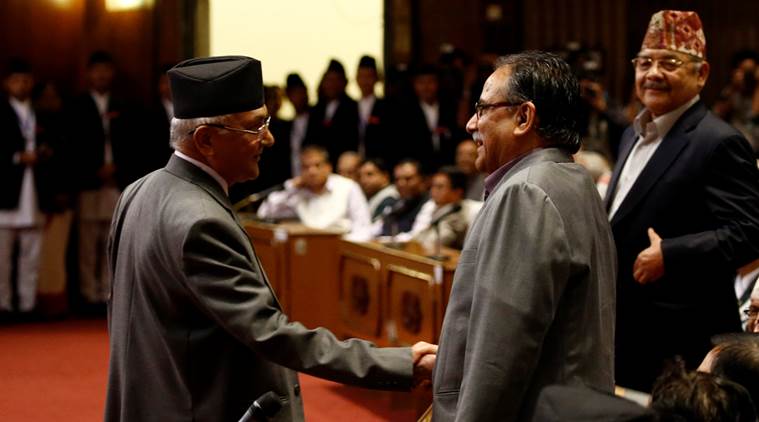 The meeting was specifically convened to discuss the provisions of the deal that the government of Nepal signed with the Millennium Challenge Corporation (MCC) (Reuters/File)
The meeting was specifically convened to discuss the provisions of the deal that the government of Nepal signed with the Millennium Challenge Corporation (MCC) (Reuters/File)
The standing committee meeting of the ruling Nepal Communist Party began on Wednesday with the party chiefs —Prime Minister K P Oli and Pushpa Kamal Dahal ‘Prachanda’ — trading barbs.
The meeting of the powerful 45-member body that was cancelled twice in the past, finally took place Wednesday, after mounting pressure and accusations that Oli had hijacked the party and the government and was running it in an authoritarian way.
Speaking at the beginning of the meeting — which will continue on Friday — Oli said even his good work, his efforts to establish socialism in the country and his strong commitment towards nationalism were not being defended by the party’s leaders. “By humiliating me, you should not feel that your stature has gone up,” he told Prachanda, who has of late come out openly against the Prime Minister.
The meeting was specifically convened to discuss the provisions of the deal that the government of Nepal signed with the Millennium Challenge Corporation (MCC) three years ago under which the MCC was to give a $500-million grant for the enhancement of power generation and distribution, as well as road construction. But its ratification by Parliament has been delayed after members, mostly from within the ruling party, expressed apprehension about it being part of the US’s Indo-Pacific strategy, which, they fear, would compromise Nepal’s national sovereignty.
Prachanda, and several other members of the standing committee, are of the opinion that it should not be passed “as it is”.
Although the MCC issue will be debated on Friday, Prachanda gave a clear indication on Wednesday that he would be critical of Oli when the standing committee takes up the matter. “You have not honoured the commitment and the deal we signed at the time of unification of the party, and you are displaying your ego and clearly undermining the party organisation,” he said.
Oli said his government had done quite well in dealing with the Covid-19 pandemic, and although 24 people lost their lives, Covid-19 is attributed to these deaths “largely because of the guidelines of the WHO that says any dead person found to have been Covid-19 positive should be considered a coronavirus death”. “In fact, not more than three or four people have died because of the coronavirus,” Oli said.